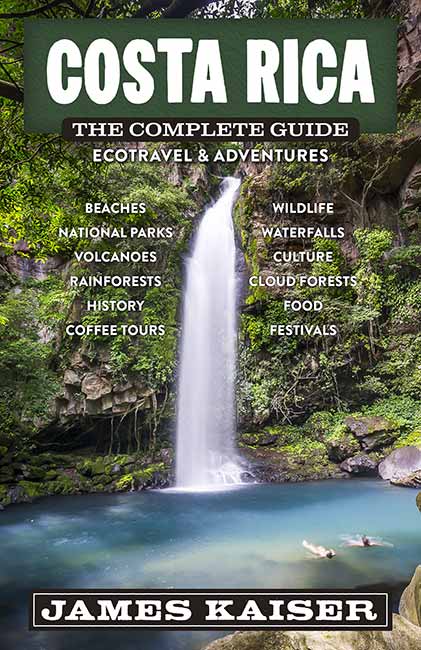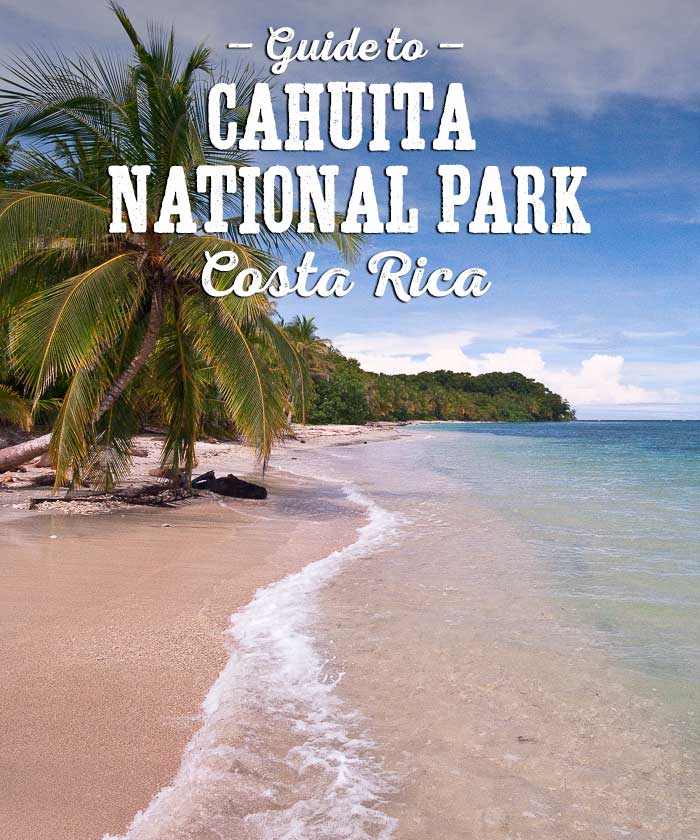
Cahuita National Park is one of the highlights of Costa Rica’s Caribbean coast.
This dramatic peninsula, lying just east of the village of Cahuita, boasts beautiful beaches, lush rainforest, incredible wildlife, and stunning corals offshore.
In the 1980s Cahuita was one of Costa Rica’s most famous national parks. Then, in 1991, an earthquake destroyed some of the corals, and attention shifted to trendy destinations on the Pacific coast. Cahuita National Park fell off the tourist radar, never regaining its former glory.
Which is great news for the rest of us!
Cahuita remains a spectacular destination. Even in the high season it has a fraction of the crowds found at similar beach destinations like Manuel Antonio.
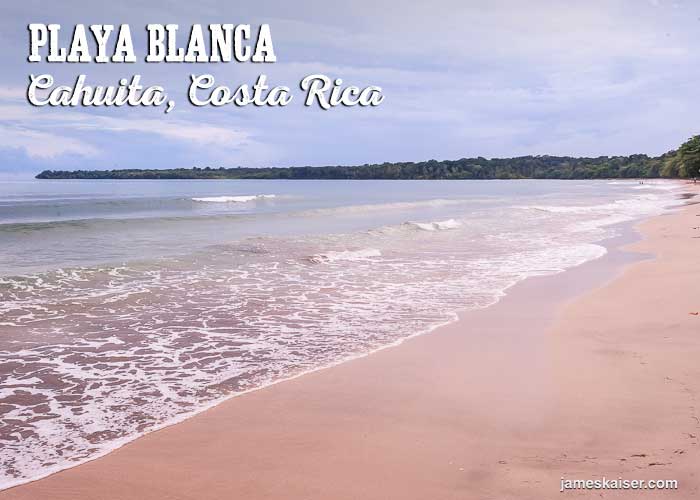
Cahuita National Park
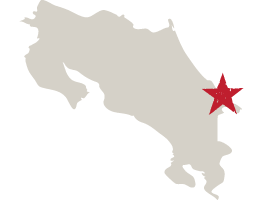
The small village of Cahuita is located on Costa Rica’s southern Caribbean coast, 5 miles (8 kilometers) northwest of Puerto Viejo. Just east of the village is Cahuita National Park, which protects a lush peninsula jutting out 1.5 miles (2.4 kilometers) into the Caribbean. The peninsula is surrounded by great beaches, while the lush interior is filled with biodiversity.
In many ways, Cahuita National Park feels like Manuel Antonio National Park — but with beautiful corals and a fraction of the crowds. As a result, Cahuita is probably one of the most underrated national parks in Costa Rica.
Park Entrances
There are two entrances to Cahuita National Park: Kelly Creek Ranger Station, located at the eastern end of Cahuita’s “Main Street,” and Puerto Vargas, located near the eastern base of the peninsula. A 5.6-mile (9-kilometer) trail wraps around the perimeter of the peninsula, connecting the two ranger stations. Hiking this trail is a great way to explore the park. A ₡1,000 “donation” is highly recommended at Kelly Creek Ranger Station. The Puerto Vargas Ranger Station charges a $10 fee. Cahuita National Park is open 8am–4pm.
The park’s most beautiful beach is Playa Blanca, which stretches south from Kelly Creek. Playa Vargas, located on the opposite side of the peninsula, is also beautiful and usually crowd-free.
If you’re interested in wildlife watching, consider hiring a local guide to point out hard-to-spot animals. Although there are often locals hanging around the entrance offering guide services, the best guides work for hotels or local tour companies (For a list of Cahuita’s best tour companies, check out Costa Rica: The Complete Guide.)
Coral Reefs
Lying just off the tip of the peninsula is one of the largest coral reefs in Costa Rica. Although beautiful, the 240-hectare (787-acre) reef has suffered some damage over the past several decades. At last count, seven of the original 34 coral species had disappeared. Some blame the damage on increased silt and pesticides washing into the ocean from nearby banana plantations.
For the moment, the worst appears over, and the reef may even be recovering. But rest assured there’s still plenty to see among the colorful corals. Snorkeling remains a highlight of any visit to Cahuita National Park.
Getting to Cahuita National Park
Driving
By road, Cahuita is 124 miles (200 km) from San José (3.5-hour drive), 27 miles (44 km) from Limón (45-minute drive), and 11 miles (17 kms) from Puerto Viejo (15-minute drive). If you drive from San José, be sure to avoid Highway 32 at night due to dense fog, poor visibility and reckless truck drivers.
Private Shuttles
Private shuttles, which will pick you up/drop you off at your hotel, are offered by several companies (I list the best private shuttle companies in Costa Rica: The Complete Guide).
Public Buses
Mepe buses (2750-0023) to Cahuita depart San José from the Terminal del Caribe (Calle Central, Ave 15) at 6am, 10am, noon, 2pm, and 4pm (₡4,670, 4 hours). Return buses depart Cahuita for San José at 7am, 8am, 9:30am, 11:30am and 4:30pm. Buses between Cahuita and Puerto Viejo (₡740) depart throughout the day.
Cahuita Photos
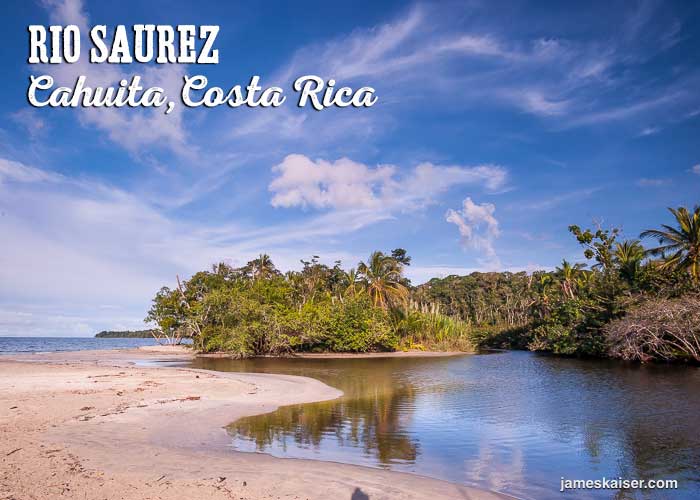
The Rio Saurez flows into the Caribbean Sea just east of Playa Blanca.
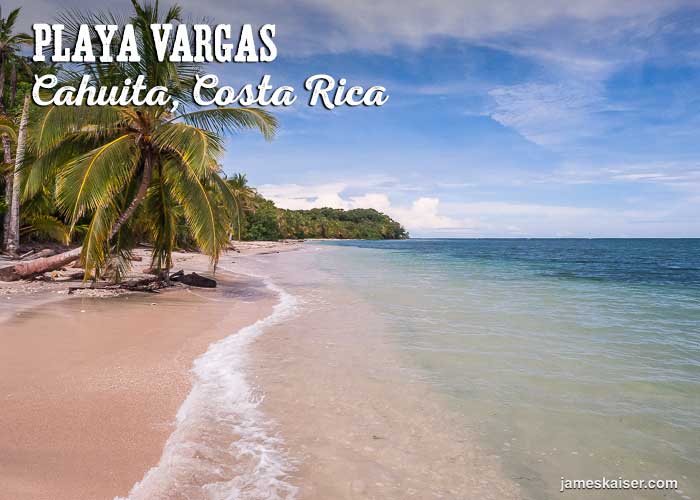
Playa Vargas, on the eastern side of Cahuita Peninsula, has beautiful beaches and few visitors.
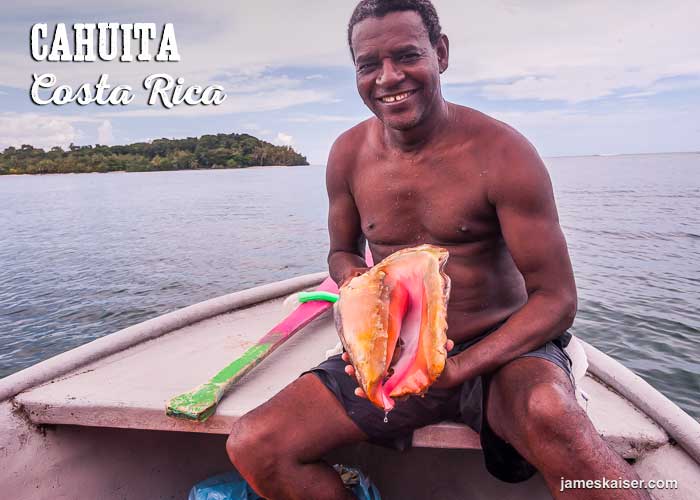
On a snorkeling trip off Cahuita Peninsula, my guide found a rare conch. To protect it from poachers he transported it to a safer location.
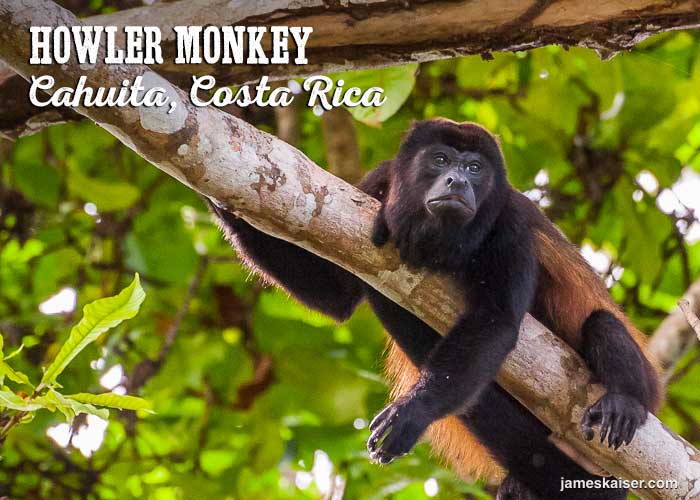
Howler Monkey in the Cahuita rainforest.
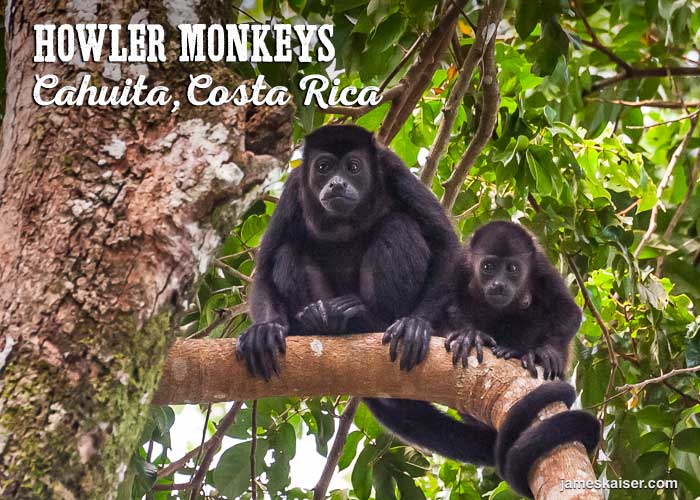
Howler monkey mother and baby.
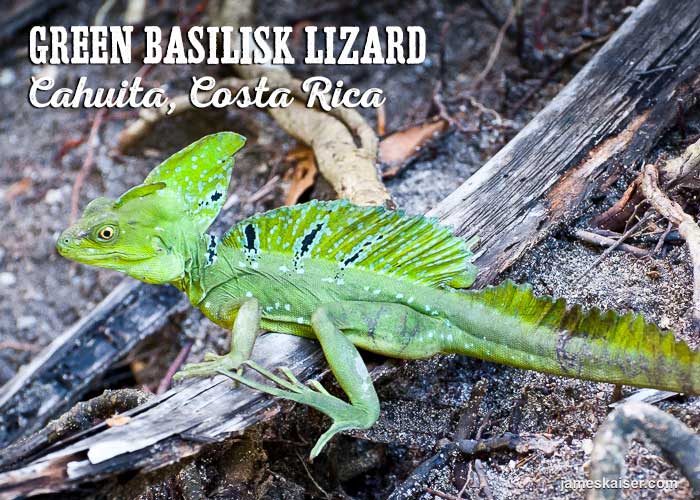
Green basilisk lizard – also known as the “Jesus Christ lizard” for it’s ability to “run” across water for short distances.
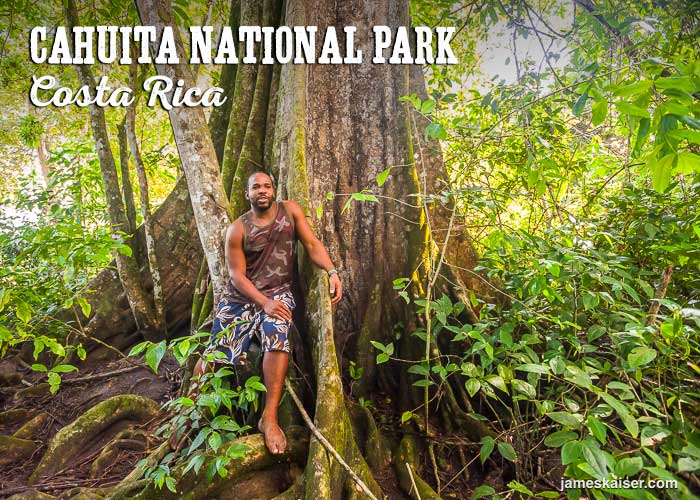
Dramatic rainforest covers the Cahuita Peninsula.
